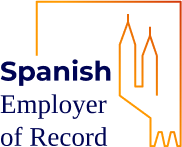7 November 2024
Expat guide: things to consider when moving as an employee to Spain
Spain, with its sunny climate, vibrant culture, and high quality of life, has become a popular destination for expats seeking new work opportunities.
Whether you’re relocating for a job in bustling Madrid, artistic Barcelona, or scenic Valencia, a smooth transition to Spain requires careful planning. This guide covers essential things to consider when moving to Spain as an employee, from legal requirements to healthcare and lifestyle tips.
Spanish Employer of Record specialises in assisting foreign companies with relocation and managing employment-related needs, including setting up compliant employment contracts and ensuring adherence to Spain’s tax and immigration laws. Our expertise allows you to focus on adjusting to your new surroundings while we handle the administrative complexities of your move.
1. Understanding visa and work permit requirements
If you are a non-EU citizen, you will need a work visa and permit, a process best initiated well before your planned arrival. Your employer in Spain can sponsor your visa, which allows you to stay legally as long as you maintain employment. EU and EFTA citizens do not require a work visa, but registration with local authorities is still mandatory.
- Long-term residency planning: If you plan to stay in Spain for a long period, explore residency options and ensure your documents remain valid.
- Timely applications: Processing can take weeks or even months, so begin the application as early as possible.
2. Registering with the local authorities
Once you arrive in Spain, it’s essential to register with local authorities. For stays exceeding three months, you must register at the closest Oficina de Extranjeros (Foreigners’ Office) or police station. Registration grants you a NIE (Número de Identificación de Extranjero), a tax identification number required for various activities, from opening a bank account to receiving a salary.
3. Setting up your Spanish bank account
A Spanish bank account is necessary for daily expenses and salary deposits. Many banks in Spain cater to international residents and may offer English-speaking services. You’ll typically need the following to open an account:
- NIE (Foreign ID Number)
- Proof of residence: such as a rental agreement or utility bill
- Identification documents like a passport or residence permit
Online banking is common in Spain, with most banks offering robust digital services.
4. Navigating the Spanish tax system
Spain’s tax structure may be more complex than what you’re used to, especially if you’re coming from a non-EU country. Taxes in Spain are progressive and vary by region. As an employee, income taxes are typically withheld by your employer, but it’s crucial to understand your annual tax obligations:
- Resident vs. non-resident status: If you live in Spain for over 183 days a year, you’re classified as a tax resident and must report global income.
- Regional differences: Taxes vary across Spain’s autonomous regions, so the tax rate may differ depending on where you reside.
Consider consulting a tax advisor familiar with Spain’s tax laws and expat requirements for personalised guidance.
5. Enrolling in Spanish healthcare
Spain’s public healthcare system is well-regarded and available to residents through social security contributions. As an employee, you and your dependents are typically entitled to access public healthcare, which offers a wide range of services.
However, many expats choose to add private insurance for quicker specialist access or to find English-speaking doctors. To access public healthcare, you’ll need to register at your local health centre, where having your NIE and social security number on hand will help streamline the process.
While public healthcare covers most needs comprehensively, private insurance is popular for those seeking additional flexibility and shorter wait times for appointments.
6. Exploring housing options
Housing markets across Spanish cities can differ significantly, making it worthwhile to research options before you arrive. Renting is the norm for expats, though it often comes with certain requirements, such as a security deposit and proof of income.
Initially, it may be helpful to consider short-term rentals, giving you time to get acquainted with different neighbourhoods and local pricing. Most rental agreements in Spain are annual, typically with a minimum commitment of six months. Some landlords may also request employment verification or references, so having these documents ready can simplify the process.
7. Understanding Spain’s social security and benefits
Social security contributions in Spain fund retirement, unemployment benefits, healthcare, and disability support. As an employee, you’ll contribute a portion of your salary, with your employer covering the rest. Contributions automatically enrol you in Spain’s benefits system, so familiarise yourself with what’s included:
- Unemployment benefits: Eligibility depends on the duration of your work and contributions.
- Pension: You accrue benefits as part of Spain’s public pension system, which can later supplement any private savings or pensions you hold.
8. Navigating cultural differences
Adjusting to Spanish culture can make your transition smoother and help build positive relationships at work. While the country has a famously relaxed pace, the work environment still values respect, punctuality, and the importance of personal connections.
I remember feeling a bit surprised at my first business meeting in Madrid when a light kiss on each cheek was part of the introduction. I quickly learned this was typical, reflecting the warmth and openness of Spanish culture.
Beyond introductions, the Spanish workplace emphasises a balanced lifestyle, with long lunch breaks and an appreciation for connecting with colleagues socially after hours. This balance fosters a sense of community and well-being that becomes integral to daily life.
9. Enrolling in language classes
While many Spaniards speak English, especially in major cities, learning Spanish can improve your experience and integration. Basic Spanish skills can help you with daily interactions, from grocery shopping to navigating public transportation. Many community centres and language schools offer classes tailored to expats.
If you’re relocating with family, Spain offers a range of educational options, from public and private schools to international institutions. International schools are open for children who may not yet speak Spanish, providing English or other languages instruction and following curricula from different countries.
Settling into life in Spain
Relocating to Spain requires thoughtful planning, including understanding the tax system, arranging health insurance, obtaining necessary permits, and opening a bank account. With the proper support, your transition can be smooth and hassle-free.
The Employer of Record in Spain simplifies this process by managing HR and payroll tasks, freeing you to focus on settling into your new life. Our expertise ensures compliance with Spanish regulations, making your move more straightforward. Explore our services for professionals and contact us to see how we can support your relocation journey.



